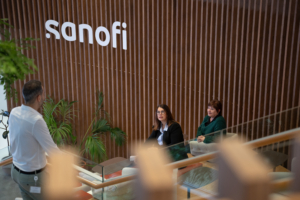
Another step towards increasing patient access to orphan drugs?
As part of the outcomes of the European Commission's Process on Corporate Responsibility in the Field of Pharmaceuticals from 17 April 2013, Member States formally endorsed recommendations on a potential coordinated and collaborative approach to address access to orphan medicinal products: the Mechanism of Coordinated Access to Orphan Medicinal Products (MOCA).
These recommendations which have been developed collaboratively by a group of EU Member States, patient organisations, industry representatives and other stakeholder representatives are aimed at exploring ways to increase patient access to Orphan Medicinal Products (OMPs) through cross-border cooperation.
The key conclusions and deliverables include a proposal for a Transparent Value Framework (TVF), which would form the basis for a structured discussion between all stakeholders around the value of an individual OMP. This would create a shared understanding between stakeholders, laying the foundations for different pricing and reimbursement discussions in individual countries.
A variety of aspects should be taken into account during this process, including the severity of the disease, the availability of other treatments as well as the impact of the new treatment on disease progression. Rarity is also a key aspect, because it increases complexity throughout the process. In many cases, an OMP might be the only available treatment for the rare disease in question. Therefore, the ability to assess its value and to make it available within a national healthcare system in a timely way is vital. The TVF attempts to capture these points and to provide the beginning of a framework for discussions around the value of an individual OMP in national healthcare systems.
The multi-stakeholder dialogue surrounding the shared challenges in ensuring that OMPs get to patients in a timely and sustainable way is also a key deliverable of the two-year MOCA process. Improved cooperation between stakeholders and across geographical boundaries is vital to giving European patients with rare diseases access to innovative and effective therapies.
The MOCA recommendations will, however, only create meaningful change for patients if there is a concrete strategy and action plan to develop the next steps that must be taken to have the necessary multi-criteria and multi-stakeholder discussions involving OMPs. Many issues still have to be resolved, and a number of steps still need to be taken to improve access to OMPs in Europe including the need to ensure that Health Technology Assessments are able to effectively capture the value of an OMP for patients.
This sector is affected by a multitude of different factors, systems and actors. Each stake-holder within the process has a part to play. But only through a collaborative and connected approach involving all stakeholders – industry, patients, national HTA agencies, clinicians, payers and national healthcare authorities – will we be able to ensure that patients have access to the treatments they need. The joint work on the shared challenges over the past two years should now lead to the next steps as we move to increase access to rare disease treatments across Europe. Industry is looking forward to being part of that ongoing process.
Wills Hughes-Wilson
is Vice President External Relations & Chief Patient Access Officer at Swedish Orphan Biovitrum (Sobi). She is also Chair of European Industry Task Force on Orphan Drugs & Rare Diseases a joint industry trade association group between EBE-EFPIA and EuropaBio, and is also an Industry Member of the European Commission’s EU Committee of Experts on Rare Diseases (EUCERD).


 ©FabienMalot
©FabienMalot Lonza Group
Lonza Group Vetter Pharma
Vetter Pharma